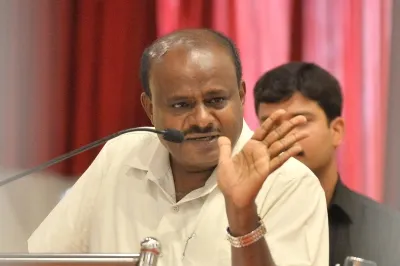Are China's FDI Proposals Facing Increased Scrutiny in India Due to Tensions with Pakistan?

Synopsis
Key Takeaways
- Stricter reviews of Chinese FDI proposals are underway.
- Potential delays in project approvals may arise.
- Geopolitical tensions influence economic policies.
- China's support for Pakistan affects investment dynamics.
- Existing proposals may be postponed.
New Delhi, May 14 (NationPress) The Indian government is set to implement more rigorous evaluations of significant investment proposals from Chinese firms looking to invest in the country, which may lead to delays in approvals for these projects, as reported by NDTV Profit.
This decision arises amidst China's backing of Pakistan following the terrorist attacks in Pahalgam and the subsequent 'Operation Sindoor'.
China has been providing diplomatic support to Pakistan, in collaboration with Turkey and Bangladesh, in addition to supplying military equipment that has been utilized against India.
The Indian government is anticipated to heighten its examination of Foreign Direct Investment (FDI) proposals and joint ventures associated with Chinese entities.
Proposals for new joint ventures may emerge as alternatives to current restrictions, yet pending applications and ongoing discussions could also experience delays, as indicated by sources cited in the NDTV Profit report.
Numerous Indian companies are negotiating with Chinese firms for joint ventures in the electronics components manufacturing sector under the government's Production-Linked Incentive (PLI) scheme, which are now likely to be postponed.
Among the notable Chinese corporations, home appliance leader Haier is considering a joint venture (JV) with the JSW Group, an Indian conglomerate, with a potential investment of Rs 1,000 crore. The proposal is currently under governmental review.
During the UN Security Council committee #1267 on counter-terrorism, China obstructed any references to The Resistance Force, a faction of the Lashkar-e-Tayiba terror group, which had claimed responsibility for the Pahalgam attacks on April 22.
China's Foreign Minister, Wang Yi, had requested an 'investigation' into the incidents as part of Pakistan’s efforts to mitigate its involvement in cross-border terrorism.
In April 2020, India imposed restrictions on FDI from China, subjecting these proposals to a governmental review on a case-by-case basis prior to approval.
Companies like Chinese telecom equipment makers Huawei and ZTE were barred from participating in the 5G rollout within India's telecom sector, citing national security concerns.
The Indian government advised telecom operators to utilize equipment only from 'trusted sources' for network expansion.









